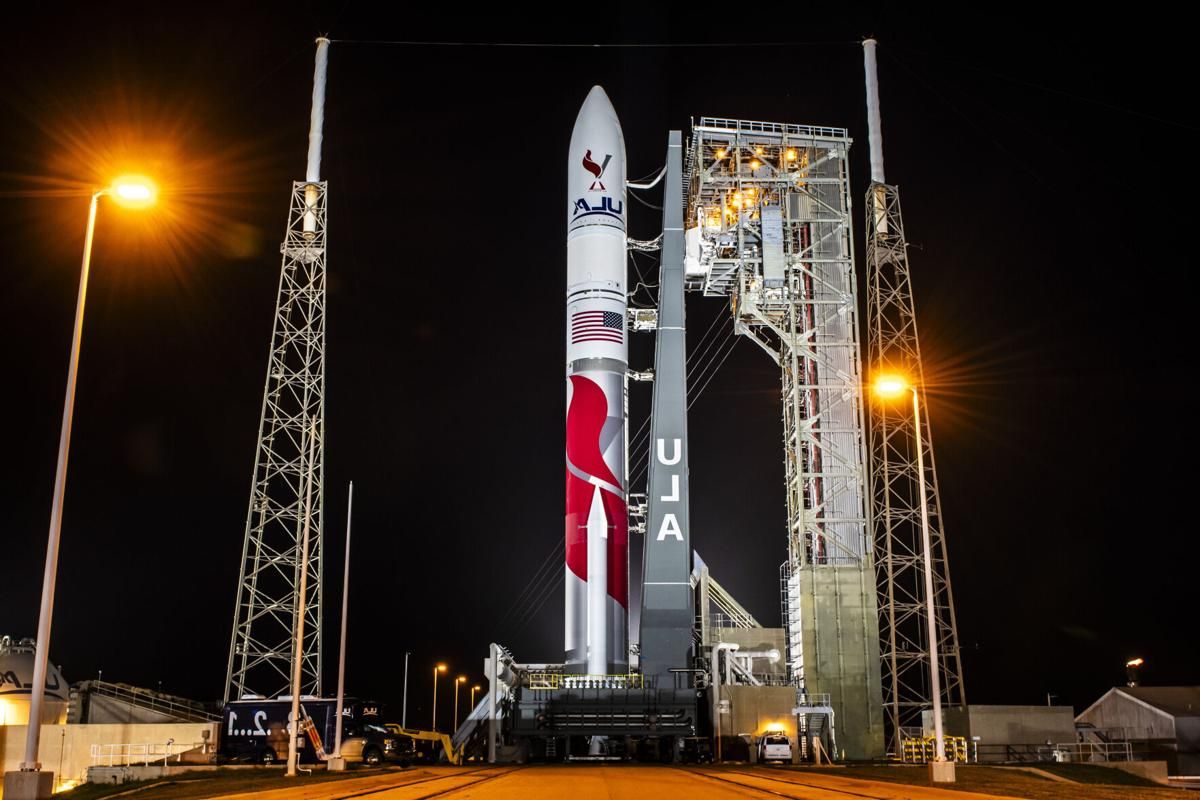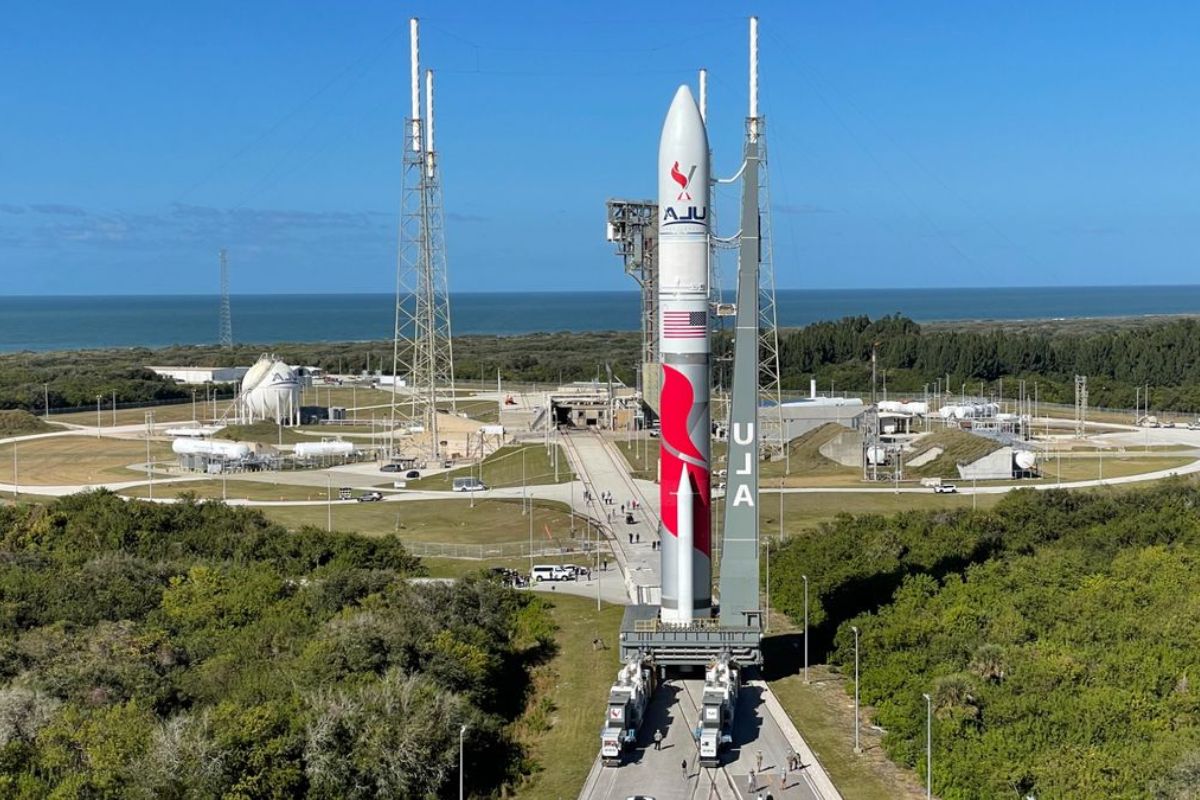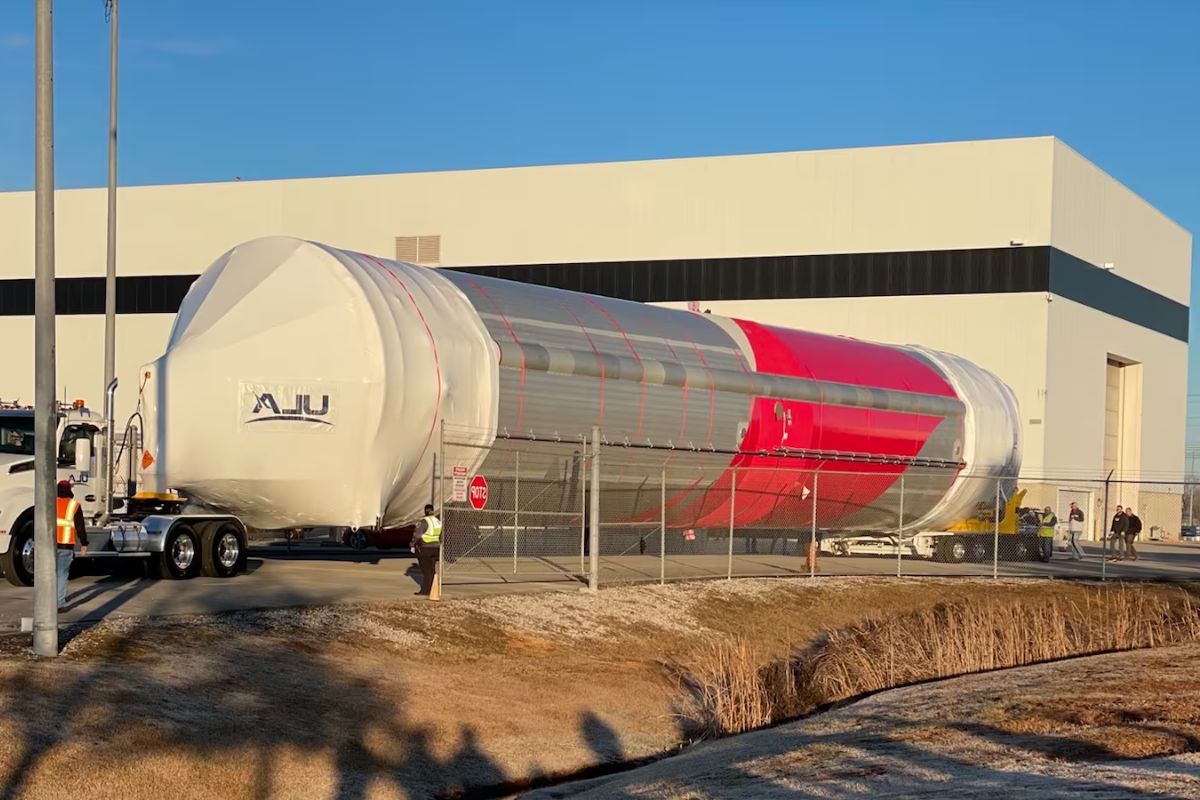Launch of the Decatur Built Vulcan Rocket: The highly anticipated launch of the Decatur-built Vulcan Rocket is set to take place on Monday, marking a significant milestone in the aerospace industry.
This collaborative effort between various entities in Alabama has not only generated economic benefits and job opportunities, but it also holds great significance for national security and commercial ventures.
As United Launch Alliance’s cutting-edge creation prepares for liftoff, the implications of a successful launch on ULA’s future and the broader space exploration landscape are eagerly awaited.
Key Takeaways
- The Decatur-built Vulcan Rocket has a height of 191 feet and a diameter of 17 feet.
- It has a payload capacity of up to 66,000 pounds and utilizes liquid oxygen and rocket propellant-1 as propellants.
- The rocket is equipped with BE-4 engines produced by Blue Origin.
- The Vulcan Rocket offers increased payload capacity, uses modern technologies like 3D printing, and is flexible to meet various mission requirements.
Decatur-Built Vulcan Rocket Set for Milestone Launch in Florida
The highly anticipated milestone launch of the Decatur-built Vulcan Rocket in Florida is set to take place on Monday, marking a significant achievement for the United Launch Alliance (ULA). This launch represents a major step forward in ULA’s mission to provide reliable and cost-effective access to space.
The Decatur-built Vulcan Rocket is a cutting-edge launch vehicle designed to deliver payloads to orbit with enhanced performance and flexibility. The Vulcan Rocket boasts impressive product specs, including:
- Height: 191 feet
- Diameter: 17 feet
- Payload capacity: up to 66,000 pounds
- Propellant: liquid oxygen and rocket propellant-1
- Engines: BE-4 engines, produced by Blue Origin
Pros of the Decatur-built Vulcan Rocket include:
- Increased payload capacity, allowing for larger and more complex missions
- Use of modern technologies, such as 3D printing, to reduce costs and improve efficiency
- Flexibility to meet a wide range of mission requirements, from commercial satellite launches to national security missions
Cons of the Vulcan Rocket include:
- The need for further testing and validation of new technologies
- Potential delays or setbacks during the development process
- Competition from other launch providers in the growing commercial space industry
As the Decatur-built Vulcan Rocket prepares for its milestone launch, the excitement and anticipation within the space community are palpable. This launch represents a significant achievement for ULA and a promising step towards advancing space exploration and innovation.

ALSO READ: Airports in Alabama: A Thriving Hub of Growth
Collaborative Effort Across Alabama: Economic Impact and Job Creation
The collaborative effort across Alabama for the Decatur-built Vulcan Rocket has resulted in significant economic impact and job creation. With over 150 suppliers spread throughout the state, the rocket project has injected millions of dollars into the local economy.
Not only does this collaboration benefit Alabama, but it also positions ULA as the largest rocket manufacturer in the country, contributing an estimated $12.9 billion in economic impact nationwide.
The manufacturing facilities in Decatur, Alabama, are at the heart of this economic boom, creating numerous job opportunities for the local workforce. The ripple effect of this collaborative effort goes beyond the state’s borders, showcasing the broad reach and influence of ULA’s operations.
This successful partnership demonstrates Alabama’s commitment to fostering innovation, economic growth, and job creation in the aerospace industry.
Economic Implications: ULA’s Significant Contribution on a National Scale
ULA’s nationwide economic impact and contribution can be attributed to the Decatur-built Vulcan Rocket. As the successor to the Atlas V rocket, the Vulcan promises enhanced capabilities and increased efficiency, which translates into significant economic benefits for the nation.
The manufacturing and launch of the Vulcan rockets necessitate a robust supply chain, creating job opportunities and driving economic growth in various sectors across the country. Additionally, the successful launch of the Vulcan rocket positions ULA as a key player in the space industry, attracting both domestic and international customers, and fostering innovation and technological advancements.
ULA’s commitment to producing cutting-edge rockets not only strengthens the nation’s space exploration capabilities but also contributes to the overall economic success of the United States.
The economic implications of ULA’s contribution on a national scale are far-reaching and underscore the importance of continued investment and support in the space industry.
Crucial Role in National Security and Commercial Ventures
With its unparalleled capabilities and potential for advancement, the Decatur-built Vulcan rocket plays a pivotal role in both national security missions and commercial ventures. Here are three reasons why the Vulcan rocket is crucial in these areas:
- Enhanced National Security: The Vulcan rocket’s advanced technology and payload capacity enable it to efficiently deliver satellites and other payloads into orbit, supporting critical national security missions. Its reliability and precision make it an indispensable asset for defense and intelligence agencies, ensuring the secure and timely deployment of vital assets.
- Commercial Opportunities: The Vulcan rocket’s versatility and cost-effectiveness open up new horizons for commercial ventures. It can support a wide range of missions, from deploying broadband satellites, like Amazon’s, to launching commercial payloads for companies seeking to expand their presence in space. This creates opportunities for innovation, economic growth, and investment in the burgeoning space industry.
- Technological Advancements: The Vulcan rocket incorporates cutting-edge technologies, such as 3D printing and advanced materials, which enhance performance and reduce costs. By pushing the boundaries of engineering and manufacturing, the Vulcan rocket drives technological advancements that benefit both national security and commercial ventures, fostering a culture of innovation and progress.

ULA’s Future and the Impact of a Successful Launch
A successful launch of the Decatur-built Vulcan rocket on Monday will have a significant impact on ULA’s future and the trajectory of space exploration.
This successful launch will not only solidify ULA’s position as a leading player in the space industry but also pave the way for future advancements in space technology.
ULA’s ability to successfully launch the Vulcan rocket will demonstrate its production capabilities and showcase its commitment to innovation and excellence.
Moreover, a successful launch will boost ULA’s reputation and attract more customers and partners for future projects.
The impact of this launch goes beyond ULA’s immediate future; it will inspire and motivate other companies and organizations to push the boundaries of space exploration, accelerating our understanding of the universe and our place in it.
Conclusion Of Launch of the Decatur Built Vulcan Rocket
The launch of the Decatur-built Vulcan rocket marks a significant milestone for the aerospace industry.
This collaborative effort across Alabama has not only had a positive economic impact, but it has also played a crucial role in national security and commercial ventures.
With the success of this launch, United Launch Alliance (ULA) is poised for a promising future and is expected to continue making significant contributions on a national scale.
Also Read: Alabama Women Basketball Shines in 79-64 Win Against Missouri
Our Reader’s Queries
What time is the Vulcan launch?
The Vulcan Centaur rocket, operated by United Launch Alliance (ULA), successfully launched from Cape Canaveral Space Force Station in Florida early Monday morning at 2:18 a.m. EST (0718 GMT).
Where is the Vulcan rocket going?
On Monday, a fresh American rocket launched from a launchpad in Cape Canaveral, Fla., marking the first time in over 50 years that an American spacecraft is bound for the moon. The rocket, named Vulcan, was constructed by United Launch Alliance.
How much does it cost to launch Vulcan?
Vulcan commands a hefty price tag of at least $110 million for each launch. ULA CEO Tory Bruno praised Vulcan’s precision in placing the Peregrine lander into orbit, calling it a “dead on bullseye.” Bruno expressed his satisfaction after the launch, stating, “This has been years of hard work.” The successful launch was celebrated from the company’s launch control room.
Will Vulcan launch from Vandenberg?
Vulcan, in addition to Florida, will soon take off from Vandenberg Space Force Base. The team has begun prepping a previous Atlas launch site for the upcoming space booster.

